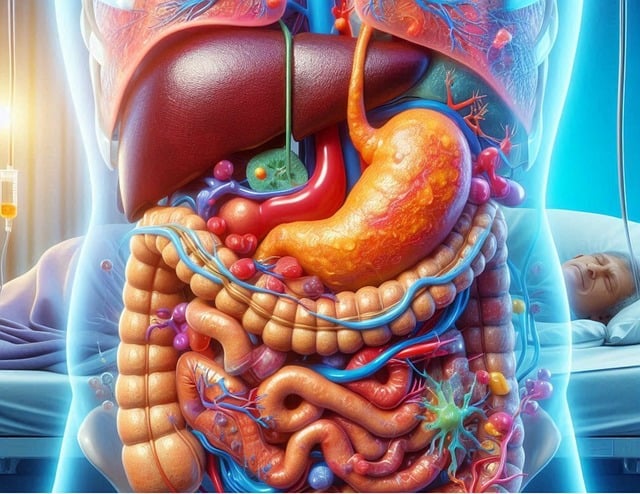Over the last month, I have noticed that I have ha d dry itchy eyes. Normally I would think this is a typical response to pollen. But there are two problems with this answer, I have never had hay fever before and we are past the pollen season. Additionally, my symptoms do not change with my location. Whether I am at work, at home, downtown, or visiting my mother in Colfax, the feeling is the same. The eyes simply itch and feel dry. What is up with this?
d dry itchy eyes. Normally I would think this is a typical response to pollen. But there are two problems with this answer, I have never had hay fever before and we are past the pollen season. Additionally, my symptoms do not change with my location. Whether I am at work, at home, downtown, or visiting my mother in Colfax, the feeling is the same. The eyes simply itch and feel dry. What is up with this?
In traditional Chinese medicine (TCM) eye problem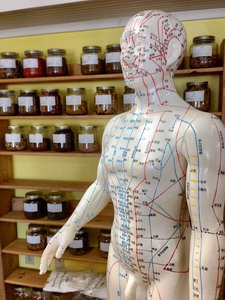 s are often related to liver meridian issues. When I tested this possible connection it showed positive so I made an adjustment for this issue and sure enough it provided relief for a while. The key here is the “for a while” statement. Acupuncture meridians describe communication between certain bodily functions (generally organs) and the part of the brain that processes feelings (physical, emotional, mental, and spiritual). You could think of these areas of the brain as what produces our sense of self as distinct from our environment. The key here is that this communication is two-way. My adjustments for meridian issues reset glitched information loops and updated the brain to the present time. I have to do this sort of thing to my computer all the time. When a program freezes I have to shut the computer off and then back on again to reset the system.
s are often related to liver meridian issues. When I tested this possible connection it showed positive so I made an adjustment for this issue and sure enough it provided relief for a while. The key here is the “for a while” statement. Acupuncture meridians describe communication between certain bodily functions (generally organs) and the part of the brain that processes feelings (physical, emotional, mental, and spiritual). You could think of these areas of the brain as what produces our sense of self as distinct from our environment. The key here is that this communication is two-way. My adjustments for meridian issues reset glitched information loops and updated the brain to the present time. I have to do this sort of thing to my computer all the time. When a program freezes I have to shut the computer off and then back on again to reset the system.
When an issue gets better temporarily it usually 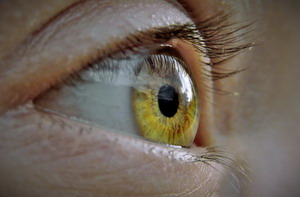 means there is a problem down in the body itself on a more chemical/structural level. Resetting the control program was only a short-term fix. We have to get down into the physical grit and grime and clean something up. This is what my temporary eye fix told me. And since it was a liver meridian adjustment that helped temporarily then most likely it is a physical liver issue that needs to be addressed. That is a big playground. The liver does over 800 different things – too much to figure out. Fortunately, organ issues generally fall into one of three categories, excess, confusion, or deficiency. The confusion angle is what the adjustment was working on. That didn’t work long term so I want to look at what could be an excess burden on my liver and what could be in deficiency. Since my diet and the amount of supplements I take are likely to have all possible liver needs met I am ruling out deficiency concerns. So where is the possible excess burden?
means there is a problem down in the body itself on a more chemical/structural level. Resetting the control program was only a short-term fix. We have to get down into the physical grit and grime and clean something up. This is what my temporary eye fix told me. And since it was a liver meridian adjustment that helped temporarily then most likely it is a physical liver issue that needs to be addressed. That is a big playground. The liver does over 800 different things – too much to figure out. Fortunately, organ issues generally fall into one of three categories, excess, confusion, or deficiency. The confusion angle is what the adjustment was working on. That didn’t work long term so I want to look at what could be an excess burden on my liver and what could be in deficiency. Since my diet and the amount of supplements I take are likely to have all possible liver needs met I am ruling out deficiency concerns. So where is the possible excess burden?
The number of supplements I take could be a bur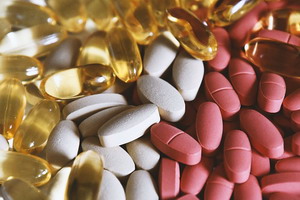 den to my liver since it is the liver that has to detoxify everything from the body. Since the symptoms are recent I first examine what have I added to my lifestyle recently. Two things come to mind – I am revving up my cellular energy production through the use of methylene blue and a bunch of other mitochondria support nutrients. I am also doing a 60-hour fast mimicking protocol every Sunday evening till Wednesday morning. While these should do amazing things for my health overall, there could be some blowback I did not consider that would affect my liver. What would those be?
den to my liver since it is the liver that has to detoxify everything from the body. Since the symptoms are recent I first examine what have I added to my lifestyle recently. Two things come to mind – I am revving up my cellular energy production through the use of methylene blue and a bunch of other mitochondria support nutrients. I am also doing a 60-hour fast mimicking protocol every Sunday evening till Wednesday morning. While these should do amazing things for my health overall, there could be some blowback I did not consider that would affect my liver. What would those be?
The basic idea behind my current biohacking experiments is to both generate the energy to kick the body into cellular detox mode and to push the immune system to search out and destroy old freeloading cranky cells called senescent cells. This is called autophagy. This will stimulate the body to build fresh new functional cells all over my body. What I didn’t consider is what happens to all the garbage produced by this cleanout. That stuff ends up in the blood and is carried to the liver to detox and expel all these poisons. This may well be the new burden on my liver that is showing up as eye irritation. I need to upgrade my liver to handle the destruction and reconstruction of the old cells in my body… hence the title of this article.
experiments is to both generate the energy to kick the body into cellular detox mode and to push the immune system to search out and destroy old freeloading cranky cells called senescent cells. This is called autophagy. This will stimulate the body to build fresh new functional cells all over my body. What I didn’t consider is what happens to all the garbage produced by this cleanout. That stuff ends up in the blood and is carried to the liver to detox and expel all these poisons. This may well be the new burden on my liver that is showing up as eye irritation. I need to upgrade my liver to handle the destruction and reconstruction of the old cells in my body… hence the title of this article.
Okay, how do we upgrade our livers? For the aver age person that is mostly about cutting out the daily poisoning of our livers with the crap we put into our mouths. What kills the liver the fastest – alcohol, sugar, rancid oils, chemicals. Despite some reports by some very flawed and biased scientific studies in the past, there is zero tolerance for alcohol in the body. Every drop you consume damages the liver. Even the alcohol produced naturally in your gut by your microbiome is a problem for the liver. Sugar is an even bigger problem simply because more people overindulge in excess sugar than alcohol. Specifically, it is the fructose in sugar that is the damaging portion, so things like high fructose corn syrup are especially damaging.
age person that is mostly about cutting out the daily poisoning of our livers with the crap we put into our mouths. What kills the liver the fastest – alcohol, sugar, rancid oils, chemicals. Despite some reports by some very flawed and biased scientific studies in the past, there is zero tolerance for alcohol in the body. Every drop you consume damages the liver. Even the alcohol produced naturally in your gut by your microbiome is a problem for the liver. Sugar is an even bigger problem simply because more people overindulge in excess sugar than alcohol. Specifically, it is the fructose in sugar that is the damaging portion, so things like high fructose corn syrup are especially damaging.
Rancid oils are super damaging little chemical h and grenades in the body. Any liquid oil can go rancid just by being exposed to the air, but heating that oil (as in frying in oil) speeds that rancidity a hundredfold. It is impossible to fry anything in liquid oil without it becoming a toxic mess. Liquid oils are all your plant and seed oils. The only safe way to buy and use these oils in the diet is cold pressed and kept in a dark bottle (sunlight also turns them rancid) in the refrigerator. Even then they will only last a couple of months once they have been opened. What about olive oil and avocado oil I hear you ask? They are less fragile but still can go rancid plus the good ones have several antioxidants in them to fight the rancidity.
and grenades in the body. Any liquid oil can go rancid just by being exposed to the air, but heating that oil (as in frying in oil) speeds that rancidity a hundredfold. It is impossible to fry anything in liquid oil without it becoming a toxic mess. Liquid oils are all your plant and seed oils. The only safe way to buy and use these oils in the diet is cold pressed and kept in a dark bottle (sunlight also turns them rancid) in the refrigerator. Even then they will only last a couple of months once they have been opened. What about olive oil and avocado oil I hear you ask? They are less fragile but still can go rancid plus the good ones have several antioxidants in them to fight the rancidity.
What about chemicals? These are a major problem that is only getting worse. There are obvious chemica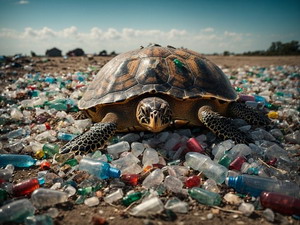 ls like pesticides, herbicides, preservatives, coloring agents, artificial flavors, conditioners, and all the other stuff that fill our processed food. Don’t eat processed food and eat organic as much as possible. For years the most toxic chemical for our liver has been Tylenol (acetaminophen). It is responsible for around 200,000 liver replacements each year. But nowadays we have a new villain filling our bodies – microplastics. We can try to avoid them as best we can, but they are everywhere. They may take out the human race. These nasty critters are being found to be decreasing human fertility significantly. Most of them mimic the hormone estrogen in the body. Estrogen excess messes us up on so many levels.
ls like pesticides, herbicides, preservatives, coloring agents, artificial flavors, conditioners, and all the other stuff that fill our processed food. Don’t eat processed food and eat organic as much as possible. For years the most toxic chemical for our liver has been Tylenol (acetaminophen). It is responsible for around 200,000 liver replacements each year. But nowadays we have a new villain filling our bodies – microplastics. We can try to avoid them as best we can, but they are everywhere. They may take out the human race. These nasty critters are being found to be decreasing human fertility significantly. Most of them mimic the hormone estrogen in the body. Estrogen excess messes us up on so many levels.
Let’s pretend that we have addressed the excess toxins from our environment through diet and lifestyl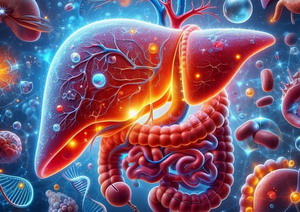 e. What do we do with our internal load of toxins? The liver is the guy that deals with all of that. What can we do to support the liver in doing its job? Probably the biggest thing we can do is get our weight down to ideal. That is where I have a challenge. The problem is that excess weight inevitably leaves some of that fat inside the liver. The fatty liver that results has a harder time doing its job. It is like replacing half the workers in a huge factory with store mannequins. They may stand in all the right places, but they are not doing the necessary jobs. As half-done jobs start to pile up the liver gets congested with a thick sticky bile that does not flow out to the intestine to be eliminated. Being well hydrated helps to thin this bile as does using certain bitter herbs like dandelion and beet tops. Such herbs that stimulate bile flow are called cholagogues. Aloe vera is another as is ginger, peppermint, turmeric, and many others. I have started taking a beet-top tablet called AF Betafood.
e. What do we do with our internal load of toxins? The liver is the guy that deals with all of that. What can we do to support the liver in doing its job? Probably the biggest thing we can do is get our weight down to ideal. That is where I have a challenge. The problem is that excess weight inevitably leaves some of that fat inside the liver. The fatty liver that results has a harder time doing its job. It is like replacing half the workers in a huge factory with store mannequins. They may stand in all the right places, but they are not doing the necessary jobs. As half-done jobs start to pile up the liver gets congested with a thick sticky bile that does not flow out to the intestine to be eliminated. Being well hydrated helps to thin this bile as does using certain bitter herbs like dandelion and beet tops. Such herbs that stimulate bile flow are called cholagogues. Aloe vera is another as is ginger, peppermint, turmeric, and many others. I have started taking a beet-top tablet called AF Betafood.
The other universal liver remedy is the herb mil k thistle. It contains a substance called silymarin which has been studied for decades for its ability to help regenerate liver cells. It is amazing. Beyond this support for the liver, I would be sure to be taking a daily good dose of fiber. The poisons the liver dumps into the small intestine can all be reabsorbed back into the bloodstream if they are not bound to a fiber to carry it out of the body. This is why I no longer advocate water fasting. While you are fasting your liver is working overtime trying to break down the poisons released by your cells from the fasting. But what good is all that liver work if you simply reabsorb all that junk by letting it sit in your colon because there is no fiber to move it along? I want a fasting that keeps the bowels moving daily.
k thistle. It contains a substance called silymarin which has been studied for decades for its ability to help regenerate liver cells. It is amazing. Beyond this support for the liver, I would be sure to be taking a daily good dose of fiber. The poisons the liver dumps into the small intestine can all be reabsorbed back into the bloodstream if they are not bound to a fiber to carry it out of the body. This is why I no longer advocate water fasting. While you are fasting your liver is working overtime trying to break down the poisons released by your cells from the fasting. But what good is all that liver work if you simply reabsorb all that junk by letting it sit in your colon because there is no fiber to move it along? I want a fasting that keeps the bowels moving daily.
The last concern is beyond the scope of this artic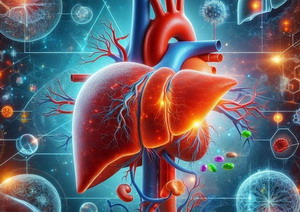 le, and that is supplying each of the necessary nutrients for the liver to do its detoxification process. There are seven primary detox pathways in the liver, and each of them needs different substrates to bind to the toxins to neutralize the nasty critters. That aside, I hope this article brings a deeper appreciation of the wonder that is your liver.
le, and that is supplying each of the necessary nutrients for the liver to do its detoxification process. There are seven primary detox pathways in the liver, and each of them needs different substrates to bind to the toxins to neutralize the nasty critters. That aside, I hope this article brings a deeper appreciation of the wonder that is your liver.
Take care,
David
